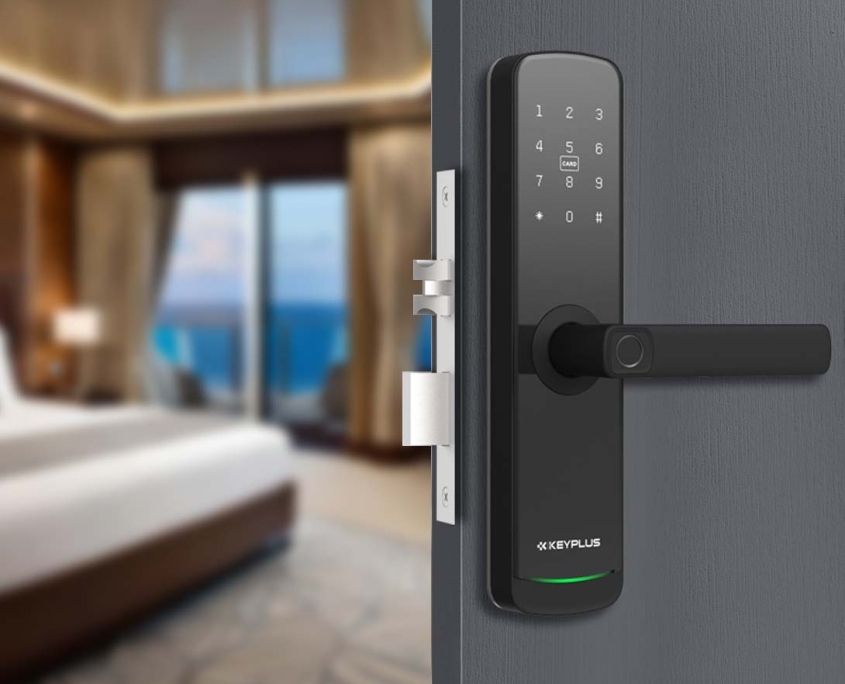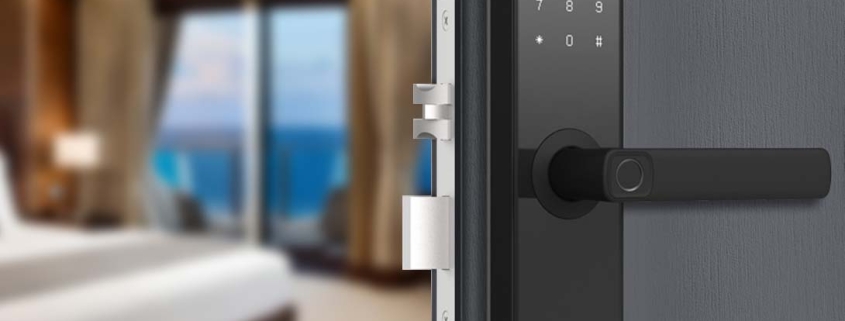Do Smart Locks Work Without Wi-Fi?
Smart locks have revolutionized home security in the U.S., offering keyless entry, remote access, and seamless smart home integration. But one question many Americans ask is: “Will my smart lock still work if my Wi-Fi goes down?”
The good news? Most smart locks do not rely solely on Wi-Fi to function. However, some features may be temporarily limited. In this guide, we’ll break down how smart locks operate without Wi-Fi, which features still work, and how to ensure you’re never locked out—even during an internet outage.
How Do Smart Locks Use Wi-Fi?
Smart locks typically connect to your home network in one of three ways:
- Direct Wi-Fi Connection – Some locks (like August Wi-Fi Smart Lock) have built-in Wi-Fi for remote control.
- Bluetooth + Hub (Zigbee/Z-Wave) – Many locks (like Yale Assure Lock 2) use Bluetooth for local access and a smart hub (like Samsung SmartThings or Amazon Echo) for remote control.
- Dual Connectivity (Wi-Fi + Bluetooth) – High-end models (like Schlage Encode) offer both Wi-Fi and Bluetooth for flexibility.
What Happens When Wi-Fi Disconnects?
- Remote access via smartphone stops working (no locking/unlocking from afar).
- Voice control (Alexa/Google Assistant) may be disabled.
- Real-time notifications (alerts, access logs) may be delayed.
But here’s the key takeaway: Your smart lock will still function locally.
Do Smart Locks Work Without Wi-Fi? (Yes, But With Limits)
What STILL Works Without Wi-Fi
- Bluetooth Access (Nearby Control)
- If your lock has Bluetooth (like August or Yale), you can still unlock it within close range (30-50 ft) using your phone.
- No internet required—just a paired smartphone.
- Manual Keypad or Fingerprint Entry
- Keypad locks (like Schlage Encode or Ultraloq U-Bolt Pro) work normally—just enter your PIN.
- Fingerprint scanners (like Eufy Smart Lock Touch) also function offline.
- Physical Keys (Backup Option)
- Most smart locks (except keyless models like August Wi-Fi Smart Lock) include a traditional keyhole for emergencies.
- Auto-Lock/Unlock via Geofencing (If Using Bluetooth)
- Some locks (like August) can still detect when you arrive home via Bluetooth geofencing.
What STOPS Working Without Wi-Fi
- Remote Lock/Unlock (When Away from Home)
- Can’t lock your door from the office or let in guests remotely.
- Voice Commands (Alexa, Google Assistant, Siri)
- Requires an active internet connection.
- Real-Time Alerts & Activity Logs
- Notifications (like “Door left open”) may be delayed until Wi-Fi returns.
- Smart Home Automations
- Scenes like “Lock door when alarm is armed” may not trigger.

How to Ensure Access During Wi-Fi Outages
1. Choose a Smart Lock with Bluetooth or Keypad
- Models like Yale Assure or Schlage Encode let you unlock via PIN or phone even without Wi-Fi.
2. Use a Smart Hub (Zigbee/Z-Wave) for Backup Connectivity
- Hub keeps your lock connected locally if Wi-Fi drops.
3. Keep a Physical Key as a Last Resort
- Store a spare key in a secure lockbox or with a trusted neighbor.
4. Enable Offline Mode in Your Smart Lock App
- Some apps (like August) cache commands so you can lock/unlock briefly after losing Wi-Fi.
5. Consider a Cellular Backup (For Advanced Users)
- Smart home systems like Alarm.com offer cellular backup for uninterrupted remote access.
Final Verdict: Can You Use a Smart Lock Without Wi-Fi?
Yes! Most smart locks still work locally via Bluetooth, keypad, or physical keys.
⚠ Remote features (voice control, real-time alerts) require Wi-Fi.
Always have a backup entry method (key, keypad, or fingerprint).
By choosing the right smart lock and preparing for Wi-Fi disruptions, you can enjoy keyless convenience without worrying about getting locked out.
Need a Reliable Smart Lock?
Check out our top-rated Wi-Fi and Bluetooth smart locks at [www.keyplusystem.com]. Have questions? Drop them in the comments below!
“A smart lock should make life easier—not leave you stranded. Pick one that works even when the internet doesn’t.”









